The Eindhoven University of Technology, abbr. TU/e, is a public technical university in the Netherlands, situated at Eindhoven. In 2020–21, around 14,000 students were enrolled in its BSc and MSc programs and around 1350 students were enrolled in its PhD and PDEng programs. In 2021, the TU/e employed around 3900 people.
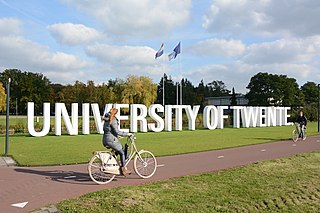
The University of Twente is a public technical university located in Enschede, Netherlands. The university has been placed in the top 170 universities in the world by multiple central ranking tables. In addition, the UT was ranked the best technical university in The Netherlands by Keuzegids Universiteiten, the most significant national university ranking. The UT collaborates with Delft University of Technology, Eindhoven University of Technology and the Wageningen University and Research Centre under the umbrella of 4TU and is also a partner in the European Consortium of Innovative Universities (ECIU).
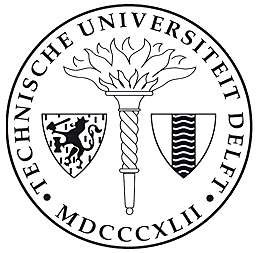
The Delft University of Technology is the oldest and largest Dutch public technical university, located in Delft, Netherlands. As of 2022 it is ranked by QS World University Rankings among the top 10 engineering and technology universities in the world. In 2023 it was ranked 2nd in the world in civil engineering, 3rd in the world in mechanical and aerospace engineering, and 3rd in the world in architecture.
The International Commission for Optics (ICO) was created in 1947 with the objective to contribute, on an international basis, to the progress and dissemination of the science of optics and photonics and their applications. It emphasises the unity of the crossdisciplinary field of optics.
Herman Thomas Karsten was a Dutch engineer who gave major contributions to architecture and town planning in Indonesia during Dutch colonial rule. Most significantly he integrated the practice of colonial urban environment with native elements; a radical approach to spatial planning for Indonesia at the time. He introduced a neighborhood plan for all ethnic groups in Semarang, built public markets in Yogyakarta and Surakarta, and a city square in the capital Batavia. Between 1915 and 1941 he was given responsibility for planning 12 out of 19 municipalities in Java, 3 out of 9 towns in Sumatra and a town in Kalimantan. He received official recognition from both the government through his appointment to the colony's major Town Planning Committee and by the academic community with his appointment to the position of Lecturer for Town Planning at the School of Engineering at Bandung. He died in an internment camp near Bandung in 1945 during the Japanese occupation of the Dutch East Indies.

The Electrical Engineering STudents' European assoCiation (EESTEC) is a nonprofit apolitical and non-governmental student organization for Electrical Engineering and Computer Science (EECS) students at universities, institutes and schools of technology in Europe awarding an engineering degree. As of March 2020, there were 48 current locations in EESTEC from 24 countries, although several other locations were active in EESTEC over the years.
Antonio Pérez Yuste is a professor of Telecommunications Engineering at Technical University of Madrid, Spain. He is a senior member of the Institute of Electrical and Electronics Engineers (IEEE), an appointed member to the IEEE Spain Section Executive Committee, and a Correspondent Member to the Royal Academy of Sciences and Arts of Barcelona (Spain).
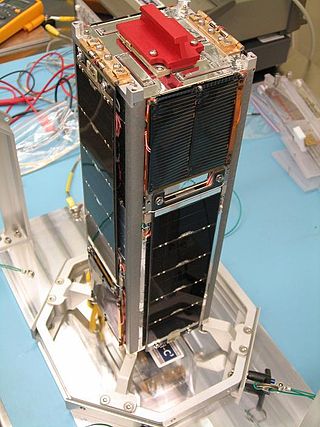
Delfi-C3 is a CubeSat satellite constructed by students at the Delft University of Technology in the Netherlands. It is a 3-unit CubeSat, and was launched at 03:53:42 on 28 April 2008, as part of the NLS-4 mission, aboard a PSLV rocket, from the Second Launch Pad at the Satish Dhawan Space Centre in India. The launch was contracted by ISRO, through Antrix Corporation and UTIAS.
The Royal Netherlands Chemical Society is a learned society and professional association founded in 1903 to represent the interests of chemists and chemical engineers in the Netherlands. Currently the organisation has approximately 7,400 members.
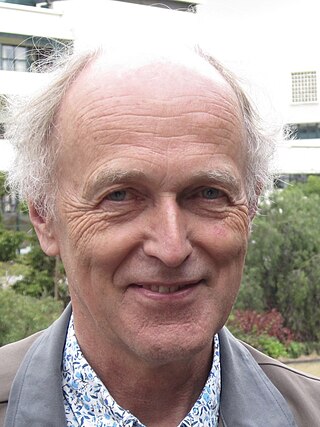
Jean Leonardus Gerardus (Jan) Dietz is a Dutch Information Systems researcher, Professor Emeritus of Information Systems Design at the Delft University of Technology, known for the development of the Design & Engineering Methodology for Organisations. and his work on Enterprise Engineering.

The European Telecommunications Standards Institute (ETSI) is an independent, not-for-profit, standardization organization in the field of information and communications. ETSI supports the development and testing of global technical standards for ICT-enabled systems, applications and services.

The International Association for Engineering Geology and the Environment, formerly International Association for Engineering Geology, also known as IAEG, is an international scientific society which was founded in 1964. It is affiliated with the International Union of Geological Sciences (IUGS) and has 3,798 members and 59 national groups all over the world.

Czech Technical University in Prague (CTU) is one of the largest universities in the Czech Republic with 8 faculties, and is one of the oldest institutes of technology in Central Europe. It is also the oldest non-military technical university in Europe.
4TU is the federation of the four Dutch universities of technology:
Jacobus "Jaap" Cornelis Haartsen is a Dutch electrical engineer, researcher, inventor and entrepreneur best known for being credited as the inventor of Bluetooth.
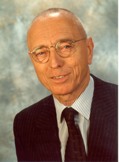
Adrianus Teunis (Aad) de Hoop is a Dutch electrical engineer, mathematician, and physicist, and professor emeritus at Delft University of Technology. De Hoop's research interests are in the broad area of wavefield modeling in acoustics, electromagnetics, and elastodynamics. Other research includes a method for computing pulsed electromagnetic fields in strongly heterogeneous media with applications to integrated circuits, and a methodology for time-domain pulsed-field antenna analysis, design, and optimization for mobile communication and radar applications.

René de Borst is a Dutch civil engineer who is known for his work on computational mechanics and fracture mechanics. Since January 2016 he is the Centenary Professor of Civil Engineering at the University of Sheffield.
Gerard Adriaan Acket is a Dutch electrical engineer and emeritus professor. He worked in the faculties of electrical engineering at Delft University of Technology between 1981 and 1988 and Eindhoven University of Technology between 1991 and 2000. His workfield was optoelectronics.

Frank den Hollander is a Dutch mathematician.
Kees Teer was a Dutch electrical engineer. He was director of the Philips Natuurkundig Laboratorium from 1968 until 1985.











